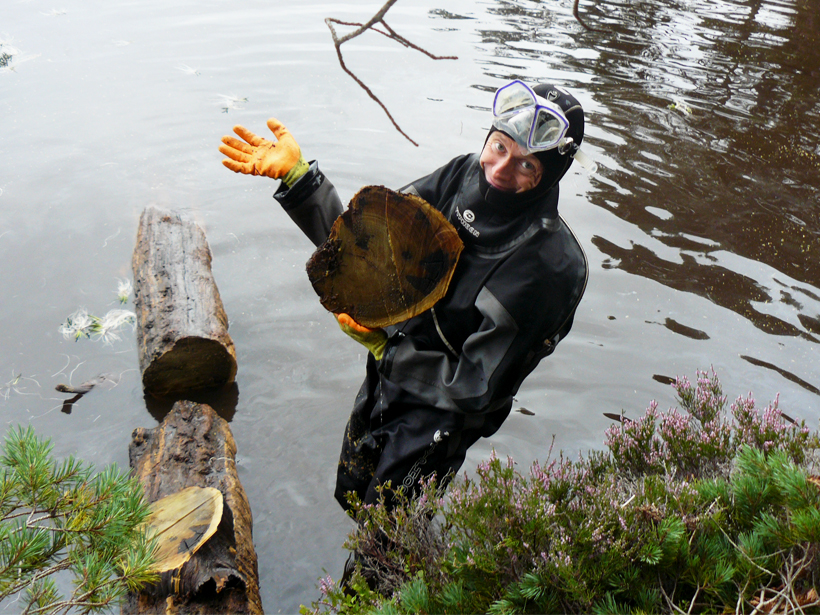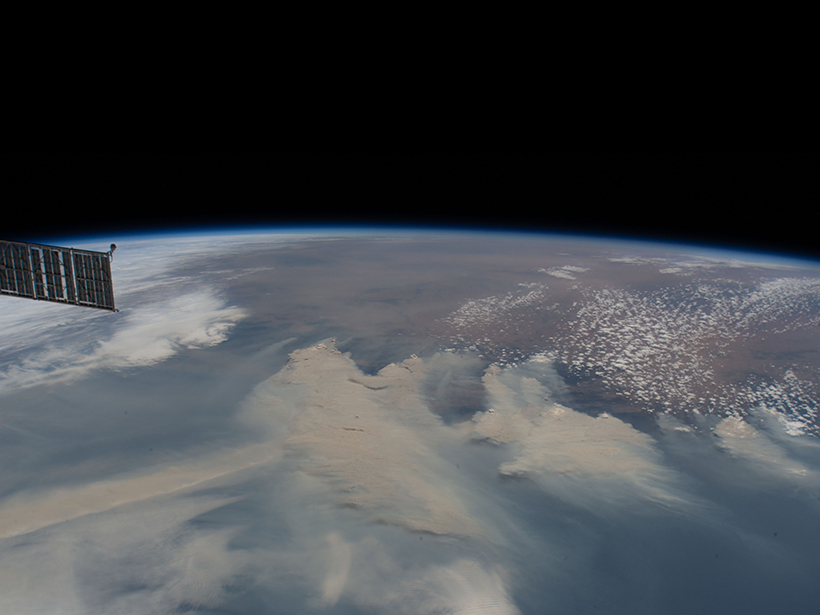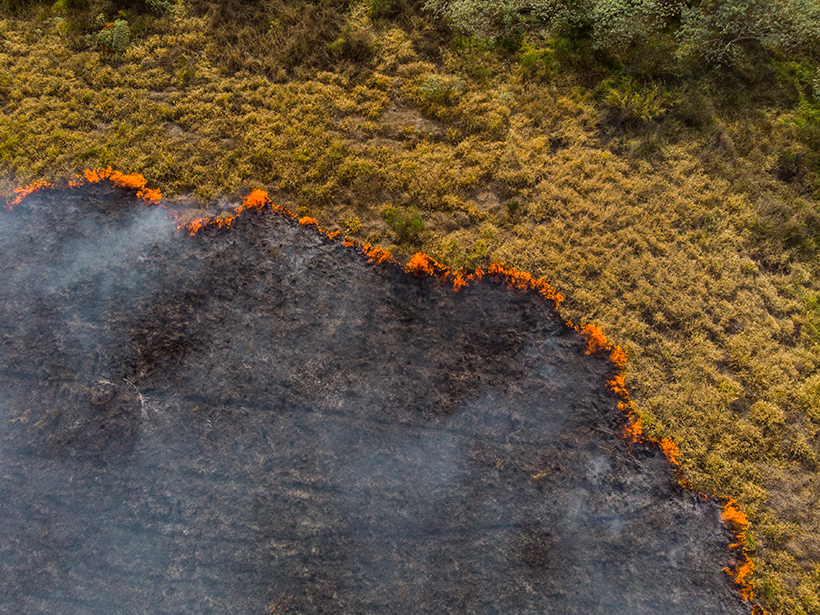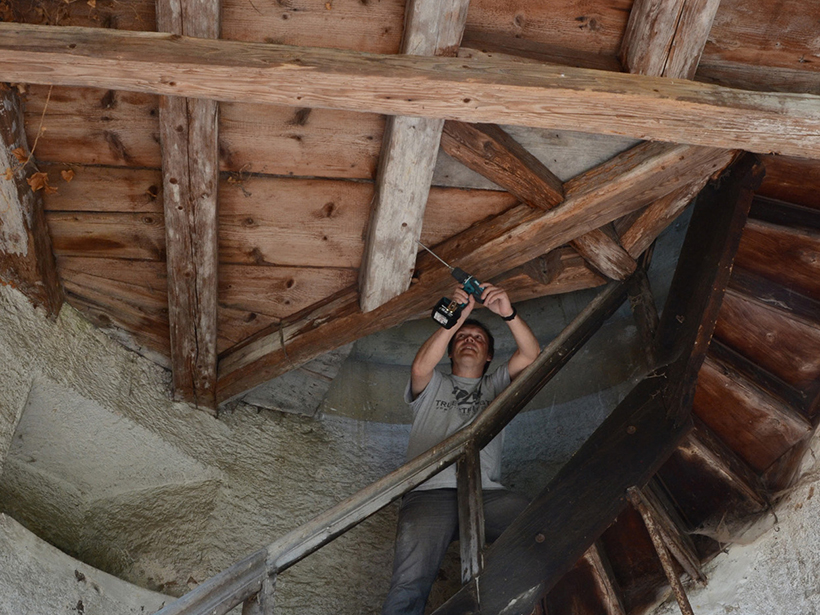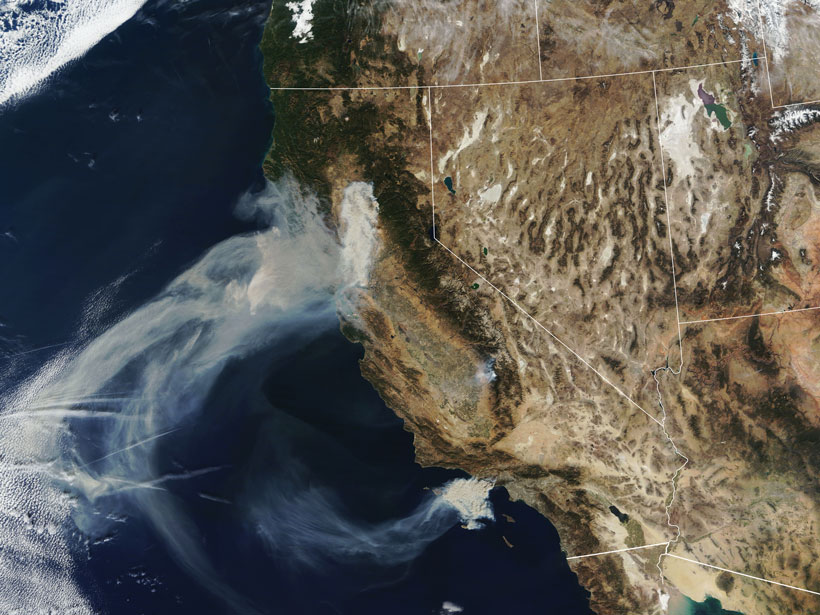Tree rings reveal how severe cold and political isolation brought disaster to Scotland, inspired a colonization effort in Panama, and helped drive union with England.
Hazards & Disasters
Where Australia’s Smoke Goes to Die
Wildfires from Down Under contribute to airborne pollution and carbon emissions—and some particulates can stay in the stratosphere for a year.
Europe’s Rivers Are the Most Obstructed on Earth
By analyzing satellite imagery of rivers worldwide, researchers have pinpointed over 35,000 obstructions like dams and locks that affect an environment’s ecology, hydrology, and water resources management.
Oil-Exposed Mahi-Mahi More Likely to Lose Oil-Avoidance Behavior
Contact with oil may make it harder for the fish to avoid additional exposure, creating a vicious cycle following offshore oil spills.
Power Outages, PG&E, and Science’s Flickering Future
As lawmakers debate planned power outages as a Band-Aid to the nation’s wildfire problem, science hangs in the balance.
Enjambre de Terremotos Inusuales Golpean a Puerto Rico
Puerto Rico no había visto tantos sismos fuertes en una sola secuencia desde que comenzó el monitoreo sísmico hace 46 años. El último terremoto que dañó la isla gravemente ocurrió en 1918.
Finding Wildfire’s Fingerprint in the Atmosphere
Smoke from burning landscapes is increasingly filling the air. Eos has dedicated its February 2020 issue to the increasingly important study of wildfire emissions.
Podcast: Discovering Europe’s History Through Its Timbers
An analysis of timber used to construct buildings in Europe hundreds of years ago is giving scientists and historians new insights into the region’s history from the 13th to 17th centuries.
A Global Perspective on Wildfires
Satellites provide global-scale data that are invaluable in efforts to understand, monitor, and respond to wildfires and emissions, which are increasingly affecting climate and putting humans at risk.
What Is Left in the Air After a Wildfire Depends on Exactly What Burned
Forecasting air quality after a wildfire is improving, thanks to more-refined models that measure the biomass going into the blaze and the emissions coming out.

